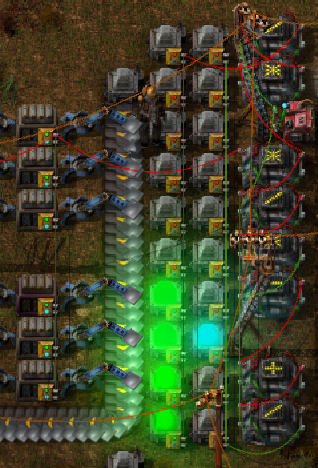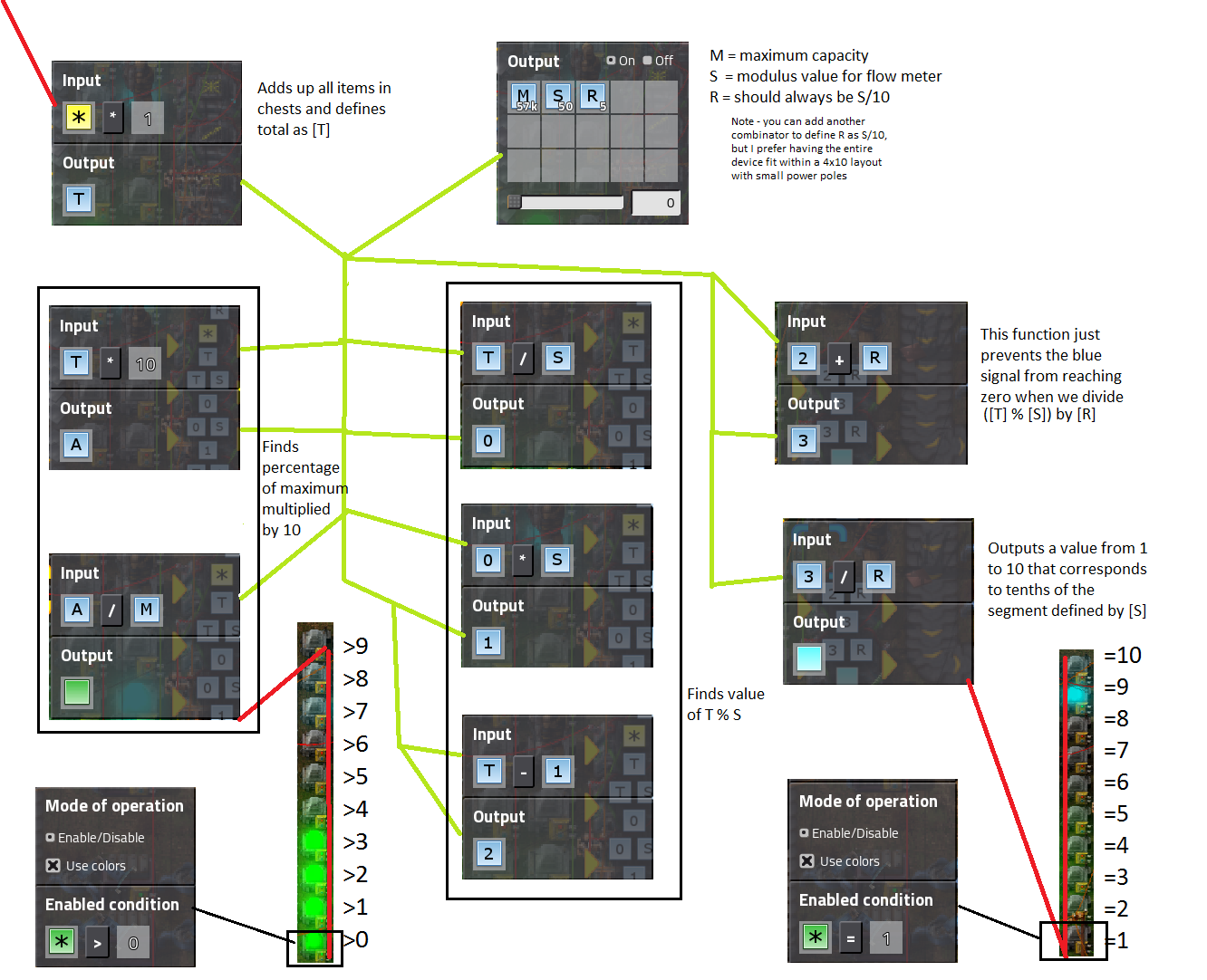Configurable buffer capacity/flow meters
Posted: Wed Apr 05, 2017 1:20 am

Hi everybody, I made this thing with combinators that I'm really proud of. This device gives you two 10-block meters that show the capacity of the buffer as a percentage of its maximum, and at what rate materials are flowing into or out of the buffer. Here's what it looks like in action:
Buffer increasing - https://gfycat.com/GlaringCommonFlee
Buffer decreasing - https://gfycat.com/FlatChubbyKillerwhale
These clips are showing that the iron buffer is at least 40% full, and each time the blue dot moves indicates a change of 5 units. This number is configurable so that you can smooth out the motion of the flow meter for very high throughput buffers.
This device uses 8 arithmetic and 1 constant combinator. It's easy to cut and paste since there's only one wire that needs to be connected to the chests for everything to work perfectly, and then you can modify the maximum capacity value and flow resolution on the constant combinator depending on what you're monitoring.
Here is a diagram I put together in paint to show how everything is connected, I tried as hard as I could to make it not look like doodoo. Please let me know if anything is unclear and I'll be happy to clarify (blueprint below) -

Blueprint